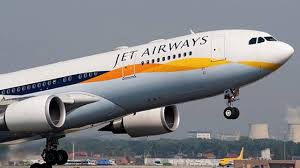Jet Airways chairman Naresh Goyal steps down as banks move in with rescue plan

Jet Airways Chairman Naresh Goyal will step down from the board of the Indian carrier he founded 25 years ago and its lenders will seize control, the company said, as part of a deal led by state-run banks to save the airline from bankruptcy.
Saddled with debt of more than $ 1 billion, Jet has been on the brink of collapse, and had to ground more than two-thirds of its fleet as it struggled pay lenders, suppliers, pilots and leasing companies.
Banks have moved in to take a majority stake in the airline after Jet failed to convince potential investors, including its largest shareholder Etihad Airways, to save the airline.
Goyal’s departure, however, could reignite investor interest in India’s oldest private airline.
Sources told Reuters in November that Tata Sons had been in active talks to invest in Jet on the condition that Goyal would step down or take a less prominent role.
Saving Jet is crucial for Indian Prime Minister Narendra Modi as he looks to avoid thousands of job losses ahead of a general election. His government had urged state-run banks to rescue the airline, sources have told Reuters.
India has already seen one airline go bankrupt in recent years. The demise of Kingfisher Airlines in 2012 left thousands without jobs and lessors lost millions of dollars.
Kingfisher’s founder Vijay Mallya, who owes money to banks and creditors, took to Twitter to express his displeasure with the government and state-run banks for not saving his airline.
“Only wish the same was done for Kingfisher,” said Mallya, who is living in London and has been declared a “fugitive economic offender” by a court in India.
Under Jet’s rescue plan, its lenders, led by State Bank of India (SBI), will take a stake of just over 50 percent, the airline said in a stock exchange announcement on Monday.
The banks will issue a loan of 15 billion rupees ($ 218 million) to meet Jet’s obligations and will form an interim management committee to oversee operations, it added.
Jet will use the money to partly clear dues owed to lessors, vendors, creditors and employees in a phased manner, the airline said in a separate statement.
It will re-deploy several of its grounded aircraft and renew many of the routes it had temporarily suspended.
Goyal’s 51 percent stake has been halved to make room for the banks, according to reports by Indian TV.
“No sacrifice is too big for me to safeguard the interest of Jet Airways and the families of the 22,000 employees,” Goyal said in the statement.
LONG HAUL
As part of the bailout plan, lenders will start a bidding process to sell their Jet stake to a new investor. In the meantime they will nominate two directors to Jet’s board.
Bids to buy a stake in Jet will open on April 9 and close on April 30 with the expectation that a new investor will be in place by May 31, SBI Chairman Rajnish Kumar told CNBC-TV18, adding that even Goyal would be eligible to bid for it.
Even as news of Goyal’s departure led to a rally in Jet’s shares, which closed 12.4 percent higher on Monday and rose as much as 8.5 percent in early trade on Tuesday, analysts say there is still a long road ahead.
The next steps, which include the amount of equity capital being infused and selection of the new board, are more critical, said Kapil Kaul, CEO of aviation consulting firm CAPA India.
“It is critical to have a world class board led by a chairman with proven credentials,” Kaul said, adding that the short timeline for the lenders’ plan to sell their controlling stake was also ambitious unless they have an investor in mind.
Also, the banks have converted only 1 rupee ($ 0.0145) of their debt into equity. That means the airline still needs to service all of its existing loans.
‘SAD DAY’ FOR INDIAN AVIATION
Goyal’s exit as chairman brings an end to an era during which he built Jet into one of India’s leading airlines with more than 120 planes, enviable landing slots and flights to places such as Hong Kong, Dubai, Paris and London.
Goyal’s wife, Anita, with whom he set up the full-service carrier at a time when state-run Air India was the only formidable opponent, will also step down from the board.
Jet has survived collapse once before when it got close to running out of cash in 2013. On that occasion, Abu Dhabi’s Etihad bought a 24 percent stake to keep the airline running.
But competition from low-cost carriers, such as IndiGo and SpiceJet Ltd, together with high oil prices, hefty fuel taxes and a weak rupee have piled on the pressure in recent months.
“Today is indeed a sad day for Indian aviation,” said Ajay Singh, chairman and managing director at SpiceJet.
Goyal and his wife made India proud by launching a “world class” airline, Singh added.
He said this was a wake-up call for Indian policy makers. “We urgently need to address structural challenges that make India’s airlines uncompetitive to airlines around the world.”

